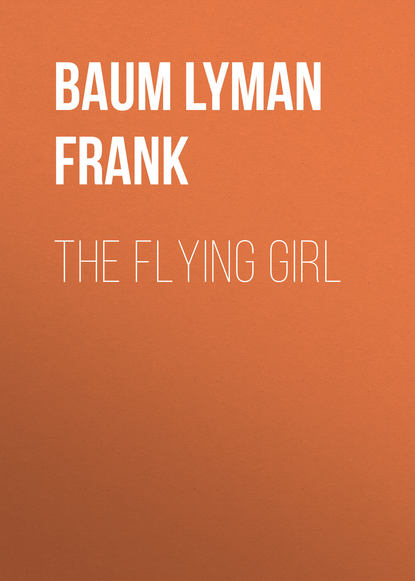По всем вопросам обращайтесь на: info@litportal.ru
(©) 2003-2024.
✖
The Flying Girl
Настройки чтения
Размер шрифта
Высота строк
Поля
“And you permit him to do this work!” cried the young man, indignantly.
“To be sure. If Brewster loses the job, some one will get it who is not my agent. It is the only way I can keep accurate account of what Burthon is up to.”
They were all silent for a time while they considered this startling information. By and by Cumberford said:
“Burthon has joined the Aëro Club, has donated a handsome cup for the best endurance flight during the coming meet at Dominguez, and in some way has made himself so popular with the officials that he has been appointed a member of the committee on arrangements. I dropped in at the Club yesterday, for I’m a member, and made this discovery. My scheming brother-in-law has some dusky, deep laid plan, and is carrying it out with particular attention to detail.”
“Do you think it concerns us, sir?” asked Orissa, anxiously.
“Yes. It isn’t extraordinary that Burthon should take a fancy to aviation. He is full of fads and fancies, and such a thing is liable to interest him. It interests me. But the meat in the nut is the fact that he is building a copy of the Kane Aircraft, merely adding a few details which he will declare are improvements.”
“Can’t we issue an injunction and stop him?” asked Steve.
“I’ve seen a lawyer about that. We can’t prove infringement at this stage of the game and it would be folly to attempt it. Burthon’s plan is to exhibit his machine first, then keep yours off the field during the meet and afterward claim that you are infringing upon his rights. He has organized a stock company, keeping most of the stock himself, has entered his device in all the aviation tournaments throughout the country, and is issuing a circular offering the machines for sale. I have a hand proof, fresh from the printer, of this circular.”
“Who will be his aviator?” asked Steve, with puckered brows.
“His former chauffeur, Mr. Totham Tyler, is one. He is now looking for another, also.”
Steve drew a long breath.
“What can we do?” he asked in a bewildered tone.
“Checkmate him,” was the composed reply.
“How, sir?”
“Well, we know pretty well all Burthon’s plans. He doesn’t suspect we know a thing; believes he will be able to keep his secret until his aëroplane is ready and he can announce it in the newspapers and create a sensation. He has concocted a very pretty trick. Until this date no one has ever heard of the Kane Aircraft. After the Burthon Improved Biplane is exploited and its praise on every tongue, you won’t be able to get even a hearing with your invention, much less a chance to fly it.”
Steve sat down and covered his face with his hands. His attitude was one of despair.
“When will Mr. Burthon’s machine be finished?” asked Orissa, thoughtfully.
“He expects to make the first trial a week from to-morrow. He has kept a force of expert men at work, and they haven’t attempted to make the Kane engines, but are using a type that has worked successfully in many biplanes. So his machine has grown into existence very quickly.”
“A week from to-morrow,” repeated Orissa, softly. “And Steve is ready to-day.”
Steve looked up quickly. Sybil laughed at him.
“You silly boy,” said she. “Can’t you understand what Daddy means by a checkmate?”
Steve turned to Mr. Cumberford, who was lighting a fresh cigarette.
“If you will place the matter in my hands,” said that gentleman, “I will proceed to put a spoke in Burthon’s wheel, so to speak. Heretofore, Steve, I have been a mere onlooker, a – an interested friend, I may say. At this juncture you’d better make me your manager.”
“Would you accept the position?” asked the boy.
“Yes; there isn’t much else to interest me just now, and – I hate Burthon.”
“Poor uncle!” sighed Sybil.
“On what terms will you undertake this, sir?” Steve inquired, with anxiety.
“Why, I may have to spend a lot of money; probably will; and my time’s valuable; when I’m not here I’m moping at the Alexandria Hotel; so I propose you give me ten per cent of your profits for the first three years.”
“That is absurd, sir,” declared Steve. “There will be little profit at first, and ten per cent of it wouldn’t amount to anything.”
Mr. Cumberford smiled – a grim smile that was one of his peculiarities.
“It’ll do, Steve. I’ll make it pay me well, see if I don’t. But you may add to the demand, if you like, by promising to present my daughter the fourth complete Kane Aircraft your factory turns out.”
“The first!” cried Steve.
“No, the fourth. We want the first three to go where they’ll advertise us. Is it a bargain, Mr. Kane?”
Steve grasped his hand.
“Of course, sir,” he replied gratefully. “I’m not sure we can defeat Mr. Burthon’s conspiracy, but I know you will do all that is possible. And thank you, sir,” he added, again pressing the elder man’s hand.
Orissa took Mr. Cumberford’s hand next. She did not express her gratitude in words, but the man understood her and to hide his embarrassment began to search for his cigarette case. As for Sybil, she regarded the scene with an amused smile, and there was a queer look in her dark eyes.
“Now,” said Orissa, “let us go in to breakfast. You must all be nearly famished.”
“Yes; let us eat, so that I can get back to town,” agreed Mr. Cumberford, cheerfully. “The campaign begins this very morning, and it may take a few people by surprise. Remember, Steve, you’re to stand ready to carry out any plans your manager makes.”
“I understand, sir.”
CHAPTER XVI
THE OPENING GUN
Sybil rode with her father into town. On the way she said:
“You puzzle me. One would imagine you are playing fair with the Kanes.”
“Mere imagination,” he returned, gruffly.
“Yes,” she agreed; “your nature is to plot and intrigue. The deeper, the more stealthy and unsuspected the plot, the more characteristic is it of my subtle parent.”
“True,” he said.
“But here is a condition that puzzles me, as I have remarked. I understand how you won the confidence of the Kanes by posing as generous and unselfish. That was quite like you. But to-day you had them in your power. You might have demanded anything – everything – yet you accepted a mere ten per cent. Now I’m really wondering what your game is.”
It was evident he did not relish his daughter’s criticism, for his usually placid brow bore a heavy frown. Still, he answered lightly:
“You’re stirring too deep; you’re roiling the pot. Why don’t you look on the surface?”
“Oh! how stupid of me,” she said in a relieved voice.

















